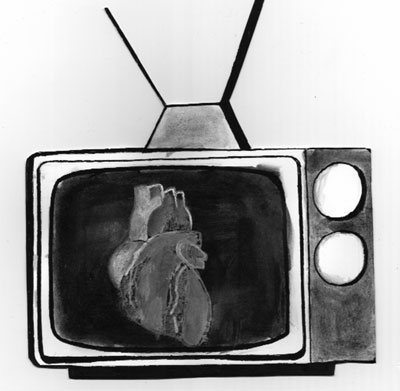All Nonfiction
- Bullying
- Books
- Academic
- Author Interviews
- Celebrity interviews
- College Articles
- College Essays
- Educator of the Year
- Heroes
- Interviews
- Memoir
- Personal Experience
- Sports
- Travel & Culture
All Opinions
- Bullying
- Current Events / Politics
- Discrimination
- Drugs / Alcohol / Smoking
- Entertainment / Celebrities
- Environment
- Love / Relationships
- Movies / Music / TV
- Pop Culture / Trends
- School / College
- Social Issues / Civics
- Spirituality / Religion
- Sports / Hobbies
All Hot Topics
- Bullying
- Community Service
- Environment
- Health
- Letters to the Editor
- Pride & Prejudice
- What Matters
- Back
Summer Guide
- Program Links
- Program Reviews
- Back
College Guide
- College Links
- College Reviews
- College Essays
- College Articles
- Back
Politics in the Entertainment Industry
After a long day of hard work, I finally get home. I feel exhausted, there is no way I have enough energy to take another step. I sit down on the couch to get some rest. Today you put in some hard work, you deserve to have some free time I tell myself. I pick up the remote to turn on the TV. After what feels like ages of switching channels, I finally find my favourite one. I expect to watch something funny but today’s special is trashing politicians. I know it is hard to believe, but I couldn't care less about a comedian's political opinions.
Some entertainers don’t understand that they are just that, entertainers. Their work is supposed to be enjoyed and we watch their shows and read their pieces because we enjoy it, so I expect it to stick with that purpose. Entertainment makes us feel multiple different emotions, it could make us laugh or cry, feel pity or vicarious joy, or just be pleased overall; but talking about politics is most likely the single worst way to make us feel these emotions. Since their political beliefs are not related to the purpose of entertainment, they are unneeded. So unless these entertainers are sharing their ideas during a show that is about politics or about sharing their ideas, they shouldn’t be included. The problem isn’t just that it doesn’t help us, it can also harm us. Celebrities and entertainers are not the most reliable source of political information as their field of expertise is far from politics. On the episode “Jimmy Kimmel Reveals Details of His Son’s Birth & Heart Disease”, Jimmy, the comedian, criticizes the health care system, saying that it is "on the back-burner while they work out their new tax plans". Theodore Kupfer from the National Review responds to Jimmy’s comments by saying: “Jimmy Kimmel can be funny, and he loves his son. Well and good. But Jimmy Kimmel knows policy? To paraphrase another comedian, comedians are not public intellectuals” (Kupfer). His son’s situation is very important to him and I am sorry for Jimmy and his son for having to experience this, but he is in no way a political expert so we should take what he says with a grain of salt.
But it isn’t just harmful to us it is also harmful to their business. When political opinions are forced down the throats of viewers or readers, they leave because they don’t agree or stay because they agree. This is a huge risk for entertainers as they either lose a lot of their supporters or gain tiny numbers support. An example of this is the Rolling Stone magazine. Rolling Stone is described as “rock’n’roll magazine turned liberal cheerleader” by Graham Ruddick, from The Guardian. Jann Wenner, the co-founder of Rolling Stone magazine, sold his controlling share of the company because of a decline in revenue. Rolling Stone’s newsstand sales went down by 10% and the online sales went down by 28% (Peterson). Nobody gets a subscription to a rock magazine to read about why "George W. Bush was the worst U.S president in history". Another example of a non-political event being politicized is the NFL. During the National Anthem, some players would kneel down instead of standing, to protest racism and specifically racially motivated police violence. Many people did not encourage this. People showed their displeasure by burning and destroying their Nike products when Colin Kaepernick, the player that started the kneeling protest, was featured in a Nike ad (Bostock). Noah Peterson from Red Alert Politics informs us that “When more players joined the kneeling/sitting protests, the league’s net favorability dropped more—from 30 percent in week three to 17 percent in week four. Ticket sales also tumbled by 18 percent at TickPick and 31 percent at TicketCity” (Peterson). But some people defend these political entertainers.
People argue that it is okay for entertainers to talk about politics because they are human too and have the right to free speech. For most circumstances, I do not agree, but if it is the intention of whatever they are doing, like getting asked a political question during an interview. Political jokes can also be funny but most of the time they don't even seem like jokes, more like opinions.
I do not think that politics should be anywhere close to the entertainment industry when it's not needed. Celebrities and entertainers are generally not experts of this subject, which means that they might not understand some areas or just be misinformed. It is also harmful to them as viewers and readers tend to stop watching or reading the work because they are angered that someone else can have a different opinion. Politics doesn’t have anything to do with entertainment, the entertainer's point is to entertain, and politics is not very entertaining. People watch to be entertained not to be informed about politics, nobody cares about the entertainer’s political opinions!

Similar Articles
JOIN THE DISCUSSION
This article has 0 comments.

I wrote this piece for writing class.